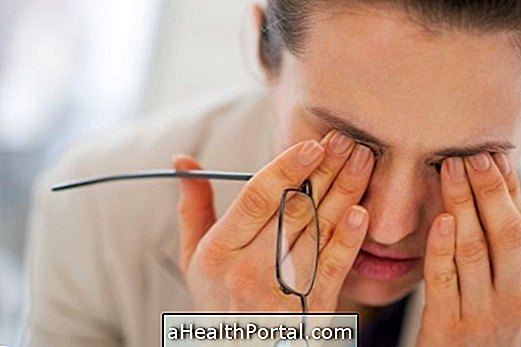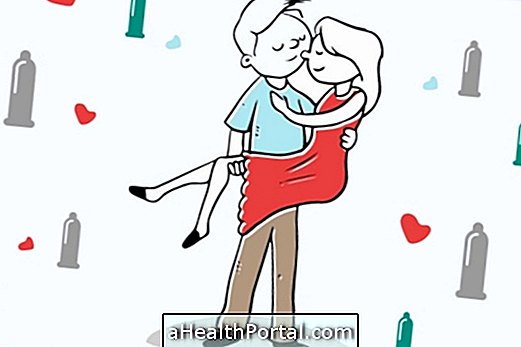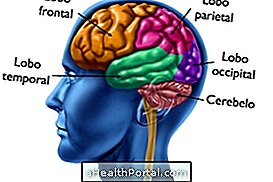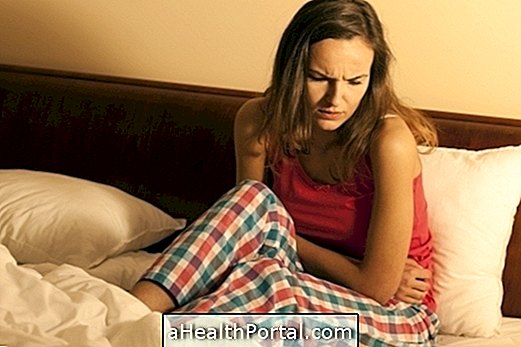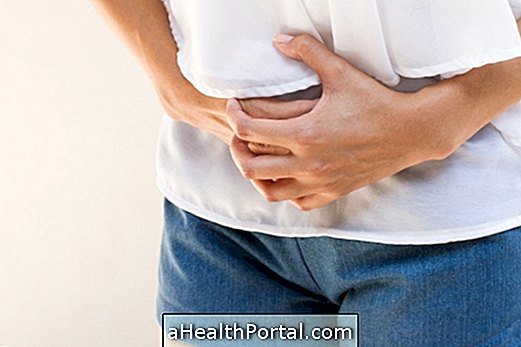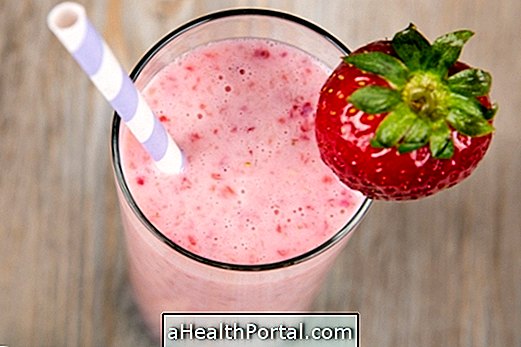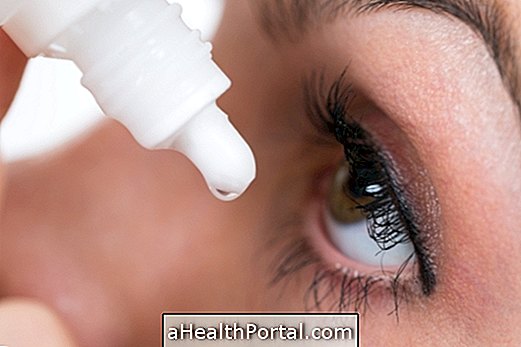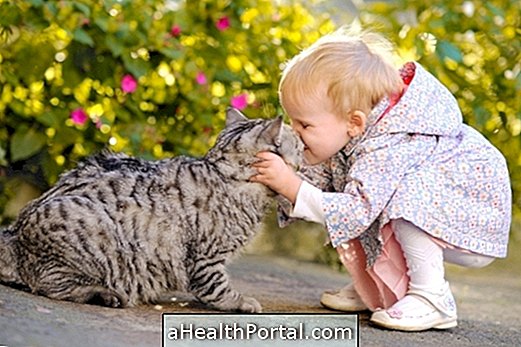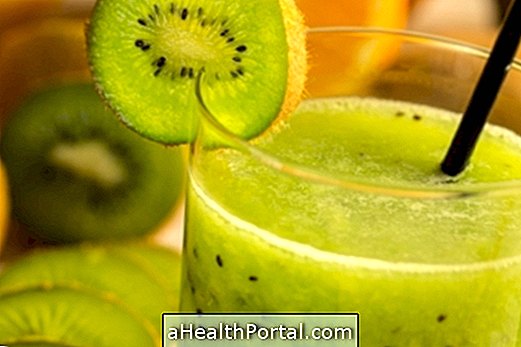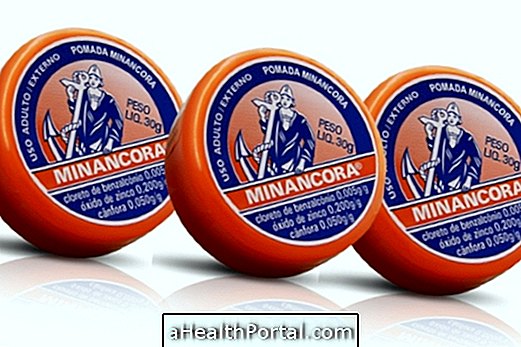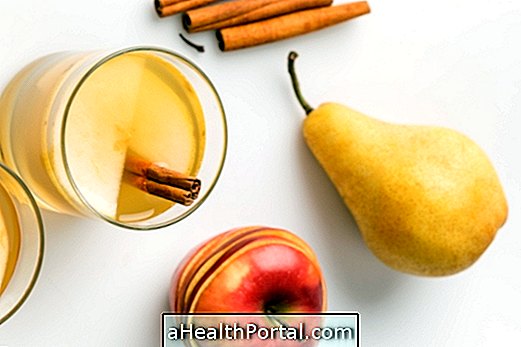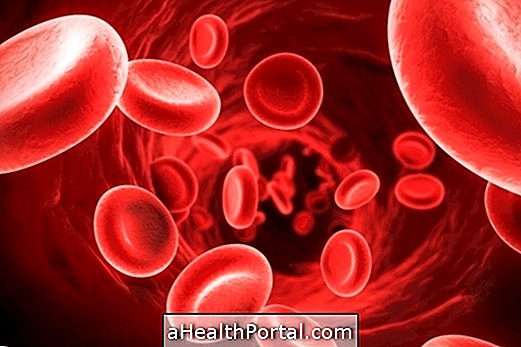The swollen stomach feeling may be related to several factors, but mainly with poor digestion, intolerance to some foods and excess gas. However, stomach swelling may indicate infections by parasites or bacteria, such as H. pylori, for example, and should be treated.
The swollen stomach normally does not pose serious health problems, but it is important that the cause is identified so that one can change eating habits or initiate drug treatment, for example to relieve swelling, as it can be quite uncomfortable.
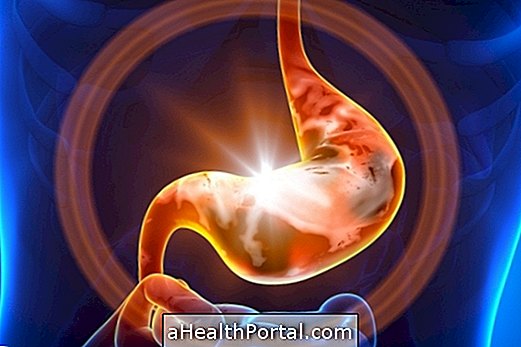
What can be the swollen stomach
The swollen stomach can happen due to several situations, the main ones being:
1. Excess gases
Excessive gas can result in discomfort and bloating, general malaise and even a swollen stomach feeling. The increase in gas production is usually related to people's habits, such as not practicing physical activities, consuming many drinks with gas and foods difficult to digest, such as cabbage, broccoli, beans and potatoes, for example. Check out some habits that increase gas production.
What to do: The best way to fight against overproduction and so relieve your symptoms is to adopt healthier habits such as regular physical activity and a lighter diet. Here are some natural and effective ways to eliminate intestinal gas.
2. Food intolerance
Some people may have intolerance to some kind of food, which results in the body's difficulty in digesting that food and leading to the appearance of symptoms such as excessive gas, abdominal pain, nausea and feeling of heaviness in the stomach, for example. See what are the symptoms of food intolerance.
What to do: If it is noticed that after the consumption of certain foods the symptoms appear, it is important to go to the gastroenterologist for confirmation of intolerance, in addition to avoiding the consumption of foods that trigger the symptoms. Learn how to know if it is food intolerance.
3. Infections
Some infections can lead to gastrointestinal symptoms, such as parasite infections. Some parasites can cause gastrointestinal symptoms, resulting in diarrhea, vomiting, nausea and bloated stomach, for example. See what are the symptoms of worms.
In addition to worm infection, fungal and bacterial infections can also result in the feeling of a bloated stomach. One example is infection by the bacterium Helicobacter pylori, which can be present in the stomach and lead to ulcers, constant heartburn, loss of appetite, abdominal pain and excess intestinal gas. Know the symptoms of H. pylori in the stomach.
What to do: It is important to go to the gastroenterologist for tests to check the cause of the infection and thus establish the best form of treatment. In case of parasite infection, the use of Albendazole or Mebendazole may be recommended and should be used as directed by your doctor.
In the case of H. pylori infection, the doctor may recommend the use of antibiotics associated with gastric protective medicines, as well as indicate the visit to a nutritionist so that the person can follow an adequate diet. Learn how H. pylori treatment is done .
4. Dyspepsia
Dyspepsia is the slow and difficult digestion of food that may be related to incorrect eating, eating too much food or stress, causing abdominal discomfort, excessive gas, and a feeling of heaviness in the stomach. Learn more about dyspepsia and how treatment is done.
What to do: The treatment for dyspepsia is done with the aim of relieving symptoms, and it is recommended to change eating habits, and the person should eat lighter and nutritious foods, such as fruits, vegetables and lean meats, for example.

5. Eat too fast
Eating too fast and chewing a little prevents the stomach from sending signals to the brain that is full, which causes the person to eat more, resulting not only in weight gain, but also in the feeling of a full and bloated, bad stomach digestion and heartburn.
In addition, lack of chewing prevents the food from being properly digested in the stomach, causing the intestinal transit to slow down, causing constipation, belching and gas, for example. Know the consequences of eating too fast.
What to do: If the swollen stomach is related to eating too fast, it is important for the person to pay attention to what he is eating, to make the meal in a calm and quiet environment, to chew 20 to 30 times the food and to stop between each fork, preferably leaving the cutlery on the plate, so you know if you are satisfied or not.
6. Stomach cancer
Stomach cancer is a type of cancer that can reach any part of the stomach and causes symptoms such as constant heartburn, nausea, vomiting, weakness, weight loss without an apparent cause, decreased appetite and a full and bloated stomach feeling, especially after meals. Get to know the symptoms of stomach cancer.
What to do: The treatment for stomach cancer is done with chemo or radiotherapy, and depending on the severity, size and location of the tumor in the stomach, it may be necessary to perform surgical removal of part or all of the organ. In addition, it is important to adopt healthy lifestyle habits such as balanced eating and regular exercise to prevent disease progression. Here's how the treatment for stomach cancer is done.
When to go to the doctor
Although it is not serious in most cases, it is important to go to the gastroenterologist to have the cause of stomach swelling checked so that the best treatment can be defined. In addition, it is essential to go to the doctor if:
- The swelling is persistent;
- Other symptoms, such as diarrhea, vomiting or bleeding;
- There is no apparent cause of weight loss.
In case the swollen stomach sensation is related to food related problems, the gastroenterologist may recommend going to a nutritionist for the person to have an orientation about their eating habits.
If it is related to infections, the doctor may recommend the use of antiparasitic medicines or antibiotics according to the identified infectious agent, in addition to the use of gastric protective drugs, such as Omeprazole or Pantoprazole, for example. Also see how to make the home remedy for bloated stomach.


